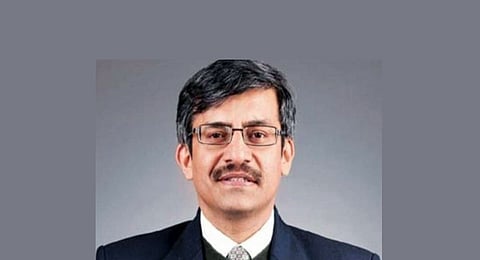Choice of acting Chairman out of sync with the UGC Act
NEW DELHI: A recent decision by the Union Ministry of Education to appoint the Secretary of Higher Education, Dr Vineet Joshi, as the acting Chairman of the University Grants Commission (UGC), has stirred controversy, with legal experts and insiders flagging a potential violation of the UGC Act.
The order, dated April 11, reads: “Dr Vineet Joshi, Secretary, Department of Higher Education, Ministry of Education is hereby entrusted the additional charge of the post of Chairman, UGC till the appointment of a regular Chairman, UGC or till he ceases to be Member, UGC or until further orders, whichever is the earliest.”
However, the order isn’t aligned with provisions in Chapter II of the UGC Act. Section 5(2) of the UGC Act says upfront, “The Chairman shall be chosen from among persons who are not officers of the Central Government or of any State Government.” Besides, as per Section 6 (3) of the same chapter, the UGC vice-chairman shall officiate as chairman in the event of a casual vacancy.
However, informed sources in the government said, “It is purely an interim arrangement, which didn’t arise out of a casual vacancy. Therefore, the question of any other UGC official or vice-chairman taking charge doesn’t arise. The process of appointment of UGC chairman will follow in due course.”
‘Vice-chairman to be acting chief in case of vacancy’, says UGC Act
Section 6 (3) of the UGC Act clearly stipulates that in the event of a casual vacancy, be it due to death, resignation, illness, or incapacity, it is the Vice-Chairman who shall automatically assume the role of Acting Chairman, sources said.
The provision leaves no ambiguity: “If a casual vacancy occurs in the office of the Chairman, whether by reason of his death, resignation or inability to discharge his functions owing to illness or other incapacity, the Vice-Chairman holding office as such for the time being shall, withstanding anything contained in sub-section (2) of section 5, act as the Chairman and shall, unless any other person is appointed earlier as the Chairman, hold the office of the Chairman for the remainder of the term of office of the person in whose place he is to so act.”
The UGC Act also outlines an exceptional clause, meant to be invoked only when there is no Vice-Chairman available. It permits the Central government to appoint any other member of the Commission as Acting Chairman, but even then, only for a temporary period not exceeding six months.
“Provided that where no Vice-Chairman is holding office at the time, when the vacancy in the office of the Chairman occurs, the Central Government shall, notwithstanding anything contained in sub-section (2) of section 5, appoint any other member to act as the Chairman and the person so appointed shall not hold the office of the Chairman, for a period exceeding six months,” the UGC Act says.

